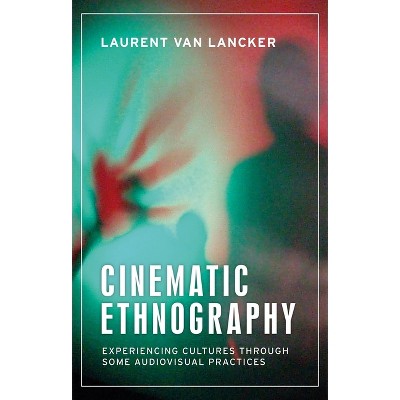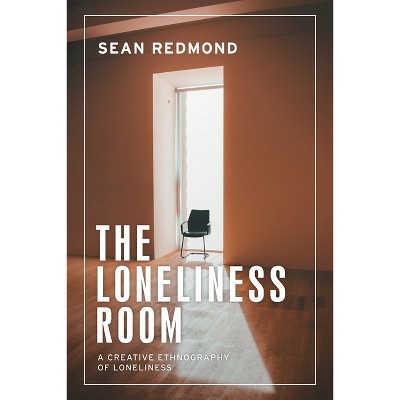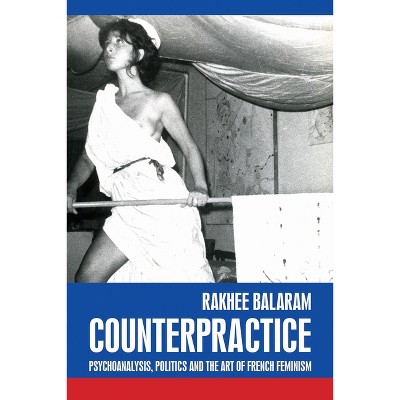Sponsored

The Anthropology of Ambiguity - by Mahnaz Alimardanian & Timothy Heffernan (Paperback)
Pre-order
Sponsored
About this item
Highlights
- This volume puts ambiguity and its generative power at the centre of analytical attention.
- About the Author: Mahnaz Alimardanian is Research Fellow at The Mabo Centre, Faculty of Business and Economics, The University of Melbourne, and the founder and lead researcher at PiiR Consulting Timothy Heffernan is Lecturer in Anthropology at the Australian National University, Canberra, Australia
- 264 Pages
- Social Science, Anthropology
Description
About the Book
This is an anthropological exploration of the existential and philosophical qualities of ambiguity as a generative force of political and socio-cultural transformation in contemporary human life trajectories.Book Synopsis
This volume puts ambiguity and its generative power at the centre of analytical attention. Rather than being cast negatively as a source of confusion, bewilderment or as a dangerous portent, ambiguity is held as the source of the dynamic between knowledge and experience and of certainty amid uncertainty. It positions human life between the realms of mystery and mastery where ambiguity is understood as the experience and expression of life and part of navigating the human condition. In turn, the tension between the tradition in anthropology of examining cultural certitudes through ethnographic description and efforts to challenge dominant expressions of incertitude are explored. Each chapter presents ethnographic accounts of how people engage individually and collectively with the self, the other, human-made institutions and the more-than-human to navigate ambiguity in a world affected by viral contagion, climate change, economic instability, labour precarity and (geo)political tension.From the Back Cover
'In unsettling times such as these, The anthropology of ambiguity provides a critical resource for thinking through the ambient flux of ambiguous experiences that increasingly constitute our contemporary condition.'
C. Jason Throop, Professor and Chair, University of California, Los Angeles
Yasmine Musharbash, Associate Professor, Australian National University Ambiguity has long captivated scholars concerned with knowledge and its production. From the classical fields of mathematics, philosophy and logic to the natural, behavioural and social sciences, each grappled with it as a puzzle to solve or a tool to wield. But what if ambiguity is not a problem to be solved, but rather a fundamental aspect of human existence? In this ambitious collection, ambiguity takes centre stage as a lens through which to explore the depths of what it means to be human. Spanning thirteen ethnographic contexts, the book delves into the rich tapestry of ambiguity's manifestations, from moments of crisis to the complexities of everyday life. Through vivid case studies encompassing natural disasters, political unrest, public health challenges, and personal identity, ambiguity emerges as a dynamic force, driving innovation and shaping collective meaning-making. Drawing on existentialist philosophy and the insights of sociocultural anthropology, particularly the legacy of The Manchester School and the philosophy of Simone de Beauvoir, this volume offers a fresh perspective on sitting and being with ambiguity. Focusing on ambiguity's power as a constituent force of openness, timelessness and plasticity, the book celebrates ambiguity as a conduit for social analysis and for doing and writing anthropology.
Review Quotes
"In unsettling times such as these, The Anthropology of ambiguity provides a critical resource for thinking through the ambient flux of ambiguous experiences that increasingly constitute our contemporary condition. Ambitious theoretically and attuned to the intricacies of lived experience, the volume significantly contributes to anthropological efforts to understand our complexly situated worldly existence as humans."
C. Jason Throop, Professor & Chair, Department of Anthropology, University of California, Los Angeles
Yasmine Musharbash, Associate Professor, Australian National University 'Grounded in ethnographic rigor, the contributors collectively emphasize the productive potential of ambiguity, challenging its conventional framing as a mere obstacle to clarity. Instead, ambiguity is celebrated as a dynamic force that underpins knowledge production, societal negotiation, and meaning-making across cultural contexts.'
Intan Rosita et al., Reviews in Anthropology
About the Author
Mahnaz Alimardanian is Research Fellow at The Mabo Centre, Faculty of Business and Economics, The University of Melbourne, and the founder and lead researcher at PiiR Consulting
Timothy Heffernan is Lecturer in Anthropology at the Australian National University, Canberra, Australia










